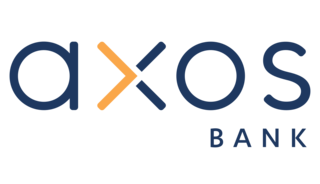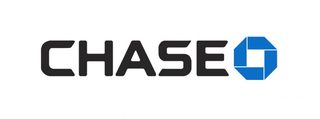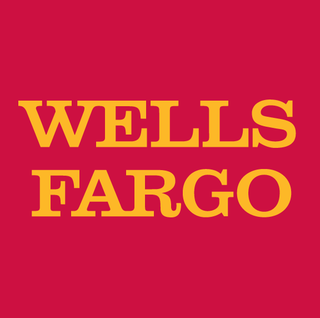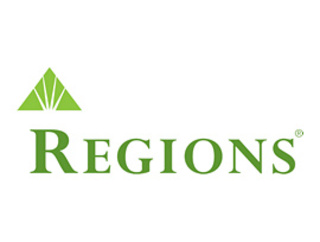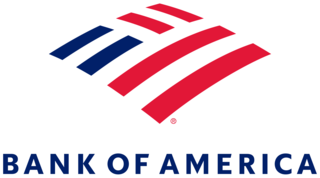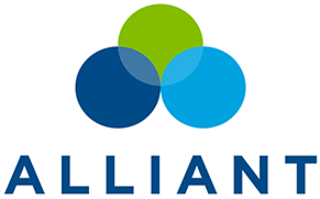Best Banks and Credit Unions for Students

Going to college can be exciting, but scary. It's probably the first time you'll be living on your own, and the first time you’ll be managing your money for yourself, including student loans. To do that, you’ll need your own bank account.
Choosing a bank account doesn’t need to be super complicated, but you should make sure you are getting a good deal. Most banks offer special versions of their standard accounts that are designed for students. But some of these accounts charge high monthly fees or will charge you to withdraw cash from ATMs. That’s why it's best to look for accounts with good interest rates for savings, easy access to your money and tools to help you manage your accounts. These are the features we considered when compiling this list of the best student bank accounts.
Here are our picks for the best banks and credit unions of 2022-2023 for students:
- PNC: Best overall
- Bethpage Federal Credit Union: Best interest rate
- Axos: Best for low fees
- Mountain America Credit Union: Best for perks
- Chase: Best sign-up bonus
- Wells Fargo: Best for convenience
- Regions Bank: Best checking/savings combo
- Bank of America: Best for promoting savings
- Alliant Credit Union: Best for high school students
PNC is our best overall bank for students, thanks to its well-rounded package for their youngest customers. The PNC Virtual Wallet Student Account is three accounts in one: a Spend Account for everyday spending, a Reserve Account checking account that pays interest and a Growth account, which is an interest-bearing savings account. These accounts can be linked to your university ID, which can then be used as a debit card. There are no service fees for this PNC account, and you’ll have access to a huge ATM network (60,000 machines). You can also use Zelle and even activate a “Low Cash Mode,” which helps you to control your spending if you see your balance is getting low.
You can open a PNC account as soon as you become a student and hold it for a maximum of six years.
PNC Highlights
- APY varies by location
- $25 minimum opening balance
- $0 monthly service fee
- Large ATM network (60,000 ATMs)
- Interest rate may be very low
- Student ID debit card program available at a limited number of colleges
Bethpage’s Young Adult Checking account is one of the best checking accounts for students for a simple reason: It pays the highest interest rate of any of the accounts we researched, at 0.40%. In order to get the best rate, you must enroll in online banking with e-statements, have a monthly direct deposit and make at least 10 point-of-sale debit card transactions per month. Bethpage’s young adult accounts also offer a wide range of benefits, like direct deposit and digital wallets, ability to use Zelle to make direct transfers and no monthly fees.
You can get a Bethpage Young Adult checking account when you turn 18 and keep it until you are 20.
Bethpage Federal Credit Union highlights
- 0.40% APY
- $0 opening balance on checking account
- Compatible with digital wallets and third-party payment apps
- No reimbursement for out-of-network ATM fees
- Relatively small ATM network (30,000 ATMs)
The Axos First Checking Account is another solid account for students, and one that has very low fees. Like the BethPage account, there is no monthly fee for this account. But unlike most of the other accounts on this list, Axos doesn’t charge overdraft fees, and doesn’t charge you if you try to make a payment and don’t have enough money to cover it. Even the most finance-savvy student can make this kind of mistake, but at least with Axos you won’t be charged for it. Axos accounts have some great additional features. Your savings will earn 0.10% interest, and you can get up to $12 in ATM fees reimbursed per month. Mobile banking is free, you can set up push alerts to keep track of your spending and you can earn $20 for referring friends.
You can get an Axos First Checking Account when you are 13 and can keep it until you are 17.
Axos Bank highlights
- 0.10% APY
- Joint account with a parent
- $0 monthly service fee
- Large ATM network (91,000 ATMs)
- $50 opening balance is higher than many banks require
- No checks
For a student bank account with lots of benefits, special offers and perks, Mountain America’s MyStyle Checking Account could be the best choice if you live in a covered area. These accounts come with an impressive range of features. You can get discounts on loans, free ID theft monitoring and mobile phone protection, free telehealth coverage, dark web monitoring and discounts on shopping, restaurants and entertainment. You don’t need to deposit any money to open an account, and there are no monthly fees. In addition, you can use Zelle to automatically make bill payments and even check your FICO credit score for free. You can get an account if you live in Utah, Idaho, Arizona, New Mexico, Montana or Nevada.
Mountain America Credit Union highlights
- $0 opening balance
- $0 monthly service fee
- Compatible with third-party payment apps
- Age 16-24
- Limited membership area
- Does not pay interest
Signing up for a Chase College Checking account can earn you $100 — the highest sign-up bonus of any of the banks we researched. This Chase account offers a wide range of benefits, including use of Zelle and free online banking. You can open an account without depositing any money, and Chase has a large number of branches across the country (4,700). You also won’t have to pay account fees until you graduate. After that, if you make one direct deposit a month, or maintain a balance of more than $5,000, the account is still free. Otherwise, you’ll have to pay $6 a month for it.
You can sign up for a Chase College Checking Account when you are 17 and keep it until you are 24.
Chase highlights
- Sign-up bonus
- $0 opening balance
- Large number of bank branches
- $0 monthly service fee
- Does not pay interest
- No out-of-network ATM fee reimbursement
Best for convenience: Wells Fargo
Wells Fargo’s Everyday Checking account can be great for students and includes exclusive benefits if your college or university participates in the Wells Fargo Campus Card program. The program’s best feature is a Campus ATM card that serves as an official school ID card when linked to an eligible checking account. A broad range of student resources and tools are offered through CollegeSTEPS, providing college planning, financial education and money management guidance, as well as access to scholarships and career preparation resources.
Wells Fargo’s accounts are a solid option. Wells Fargo has one of the largest ATM networks in the country, with more than 12,000 machines and close to 4,600 branches, to help you avoid withdrawal fees. If you do use an out-of-network ATM to access an eligible Campus Card linked checking account, there are no Wells Fargo fees charged on up to four withdrawals per fee period.
You can get an Everyday Checking account when you are 17, and you can open one with just $25. The monthly service fee is waived for ages 17–24.
Wells Fargo highlights
- $25 opening balance
- $0 monthly service fee age 17–24
- No Wells Fargo fees on up to four withdrawals at out-of-network ATMs per month with a Campus Card linked to an eligible checking account
- CollegeSTEPS® provides access to scholarships, student money management guidance and career preparation resources
- Everyday Checking account does not pay interest
The Regions Bank LifeGreen Checking Account isn’t specifically for students, but it could be a good option if you are looking to open an account while you're in college. Regions Bank offers linked checking and saving accounts, and rewards you for saving each month. The LifeGreen savings account offers a 1% annual savings bonus if you transfer $10 into it for 10 out of 12 months, which can help build a savings habit. This account has no monthly fee and allows you to write an unlimited number of checks. You can use Bill Pay and Zelle.
You can open a LifeGreen Checking Account once you are 18 and keep it until you are 25.
Regions Bank highlights
- 1% APY on savings
- $50 minimum opening balance
- $0 monthly service fee
- Unlimited check writing
- Compatible with third-party payment apps
- Serves customers in the South, Midwest and Texas only
- No reimbursement for out-of-network ATM fees
- Small ATM network (2,000+ ATMs)
The Bank of America Advantage Safe Balance Account offers a range of resources and automated tools that can help you to meet your savings goals. The Bank of America app, for example, lets you set savings goals and switch on a “Keep the Change” tool that will automatically round up your purchases and put the difference into your savings.
The account also has a range of other benefits, including a low opening balance requirement of $25 and no account fees. Online and mobile banking is available at no extra cost, and you can use Zelle. Perhaps best of all, you can transfer your student account to a regular checking account once you graduate, and add a savings account when you need one.
These accounts are open to students under age 25.
Bank of America highlights
- $25 opening balance
- Automated savings tools
- Compatible with third-party payment apps
- No monthly maintenance fee
- No overdraft fee
- Does not pay interest
- No reimbursement for out-of-network ATM fees
Most of the bank accounts we’ve looked at are focused on college students. However, it can be a good idea to open an account before you go to college. If you are a parent, you might want to open an account for your child long before they go to college.
If you are looking for a bank account for a teenager, our choice is the Alliant Teen Checking Account. This is a joint account held by both a parent and their teenager, but it pays interest and comes with a debit card that has daily limits. Signing up for an account like this can help your teenager build financial confidence and good habits, while making sure that you (as a parent) remain in control.
The account is also competitively priced. There are no monthly fees, and you can earn up to 0.25% interest if you make one monthly direct deposit and sign up for e-statements. There’s also a large ATM network (80,000 machines) and your teen can use the debit card with Apple Pay, Samsung Pay, Google Pay, PayPal or Venmo.
You can sign up for this account once your child reaches 13, and can keep it until they reach 17.
Alliant Credit Union highlights
- 0.25% APY if requirements are met
- Large ATM network (80,000+ ATMs)
- Compatible with digital wallets and third party payment apps
- Up to $20 in out-of-network ATM fees reimbursed per month
- No paper checks
How we chose the Best Banks of 2022-2023
To determine our list of Best Banks for 2022-2023, Money staff evaluated 50 of the largest retail banks and credit unions, ranked by assets, and 15 of the most popular online banks. We then compared opening balance requirements, interest paid, fees and features to determine our top picks. You can read our full methodology here.
More from Money:
Return to Best Banks 2022-2023
Best High-Yield Savings Accounts



